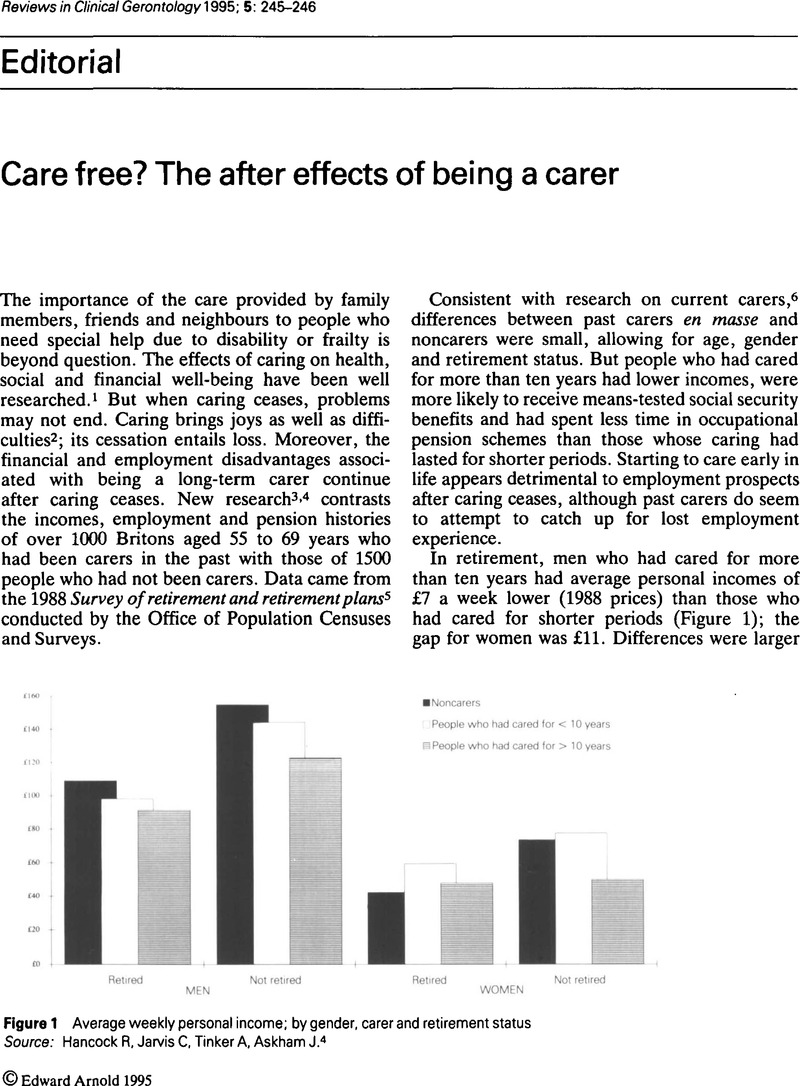No CrossRef data available.
Article contents
Care free? The after effects of being a carer
Published online by Cambridge University Press: 17 November 2008
Abstract
An abstract is not available for this content so a preview has been provided. As you have access to this content, a full PDF is available via the ‘Save PDF’ action button.

- Type
- Editorial
- Information
- Copyright
- Copyright © Cambridge University Press 1995
References
1Parker, G. With due care and attention: a review of the literature on informal care. London: Family Policy Studies Centre, 1990.Google Scholar
2Askham, J, Grundy, E, Tinker, A. Caring: the importance of third age carers. The Carnegie inquiry into the third age, research paper number 6. Dunfermline: Carnegie UK Trust, 1992.Google Scholar
4Hancock, R, Jarvis, C, Tinker, A, Askham, J. After care: summary findings from a study of the long-term effects of being a carer. London: HMSO, 1994.Google Scholar
5Bone, M, Gregory, J, Gill, B, Lader, D. Retirement and retirement plans. London: HMSO, 1992.Google Scholar
6Parker, G, Lawton, D. Different types of care, different types of carer: evidence from the General Household Survey. London: HMSO, 1994.Google Scholar




